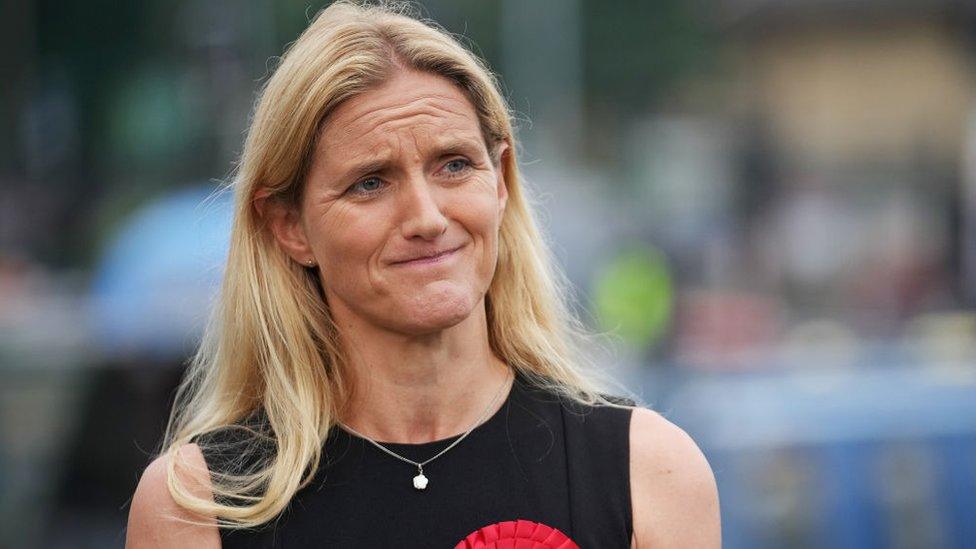Sir David Amess: We must learn from hideous killing, says Commons Speaker Lindsay Hoyle
- Published
Commons Speaker Sir Lindsay Hoyle: "We cannot give in, and must not give in"
The House of Commons Speaker Sir Lindsay Hoyle has said "we must learn" from the "hideous killing" of Sir David Amess, and ensure MPs are protected.
The Chorley MP told the BBC he would review safety measures - but also warned against a "knee-jerk reaction".
He said it was important to "protect our democracy" against "people who hate our values and the democratic process".
He also urged MPs to take up the security options currently on offer.
Sir Lindsay praised Sir David as a "well-loved" politician who "got the best out of the job".
He said MPs would be able to pay tribute in the House of Commons on Monday, followed by a church service.
He also said it would be right to install a plaque in the House of Commons to honour Sir David, as happened following the murder of MP Jo Cox in 2016.
Speaking to the BBC's Andrew Marr, Home Secretary Priti Patel said she and the Speaker were looking at "practical measures" to protect MPs.
But she stressed that any action should be "proportionate to the risk" and that MPs should remain "accessible".
Sir David, 69, was stabbed multiple times at Belfairs Methodist Church in Leigh-on-Sea, where he had been meeting members of the public.
A man arrested by police after the killing is Ali Harbi Ali, a 25-year-old British citizen of Somali heritage, Whitehall officials have told the BBC.
Police say he is being held at a London police station under the Terrorism Act 2000.
It has also emerged that some years ago he was referred to the government's counter-extremism programme, Prevent, although it is thought he did not spend long in the scheme and he was not on MI5's watch list.
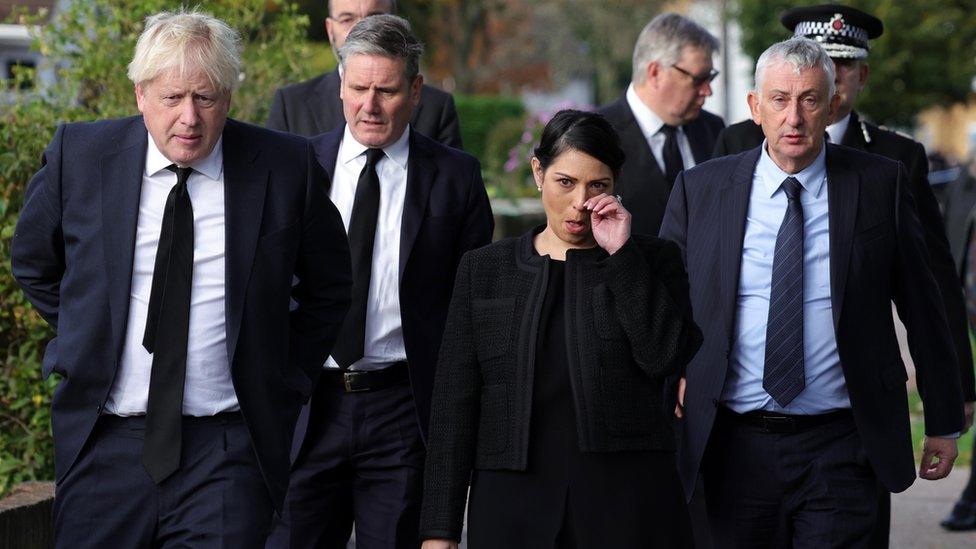
Commons Speaker Sir Lindsay Hoyle (right) joined Home Secretary Priti Patel, Labour leader Sir Keir Starmer and Prime Minister Boris Johnson as they laid floral tributes to Sir David Amess on Saturday
Teachers, members of the public, the NHS and others can refer individuals to a local panel of police, social workers and other experts who decide whether and how to intervene in their lives.
The attack has led MPs and their staff to question whether they are still safe to meet constituents face-to-face without police protection.
Sir Lindsay said it was "right" that he went ahead with his own two-hour surgery in his constituency in Lancashire on Friday, hours after hearing of the attack on Sir David.
MPs regularly hold surgeries in public buildings, such as churches and libraries, where constituents can seek advice and support.
"My constituents needed access to me - I gave them that access," Sir Lindsay said.
Watch: Home Secretary Priti Patel says security measures for MPs are "being looked at"
He acknowledged people would be "very worried" and said it was important to get "the best outcome out of this hideous killing".
"We will look at all the different measures, we will review measures, we will also remind members - please take up the measures available to you," he said.
Since Jo Cox's murder, MPs have increasingly been taking more security precautions.
In 2016, Labour's Jess Phillips told the BBC she had installed a panic room in her office and locksmiths had "overhauled" her house.
Other MPs, including Labour's deputy leader Angela Rayner and Conservative minister Caroline Dinenage, have said they have had emergency buttons fitted in their homes.

What security is currently in place?
Most MPs do not get close protection while in their constituencies, but security was increased following Ms Cox's killing.
All MPs were offered panic buttons, extra lighting, additional locks and emergency fobs at their homes and constituency offices.
The spending on such measures soared from £170,576 in 2015/16 to £4.5m two years later.

Writing in the Observer, external and the Mail on Sunday, external, Sir Lindsay also called for an end to "the hate which drives... attacks" against MPs.
"If anything positive is to come out of this latest awful tragedy," he said, "it is that the quality of political discourse has to change. The conversation has to be kinder and based on respect."
Ms Patel said abuse directed to MPs - as well as the wider population - could be "very corrosive" but said the government would adopt a "balanced" approach towards banning anonymous accounts, as they could be used by "pro-democracy" movements.
Labour MP Diane Abbott - who has been the target of a large volume of online abuse - told the BBC it could be "very traumatic".
She said social media companies needed to do "a lot more" to take down abusive accounts.
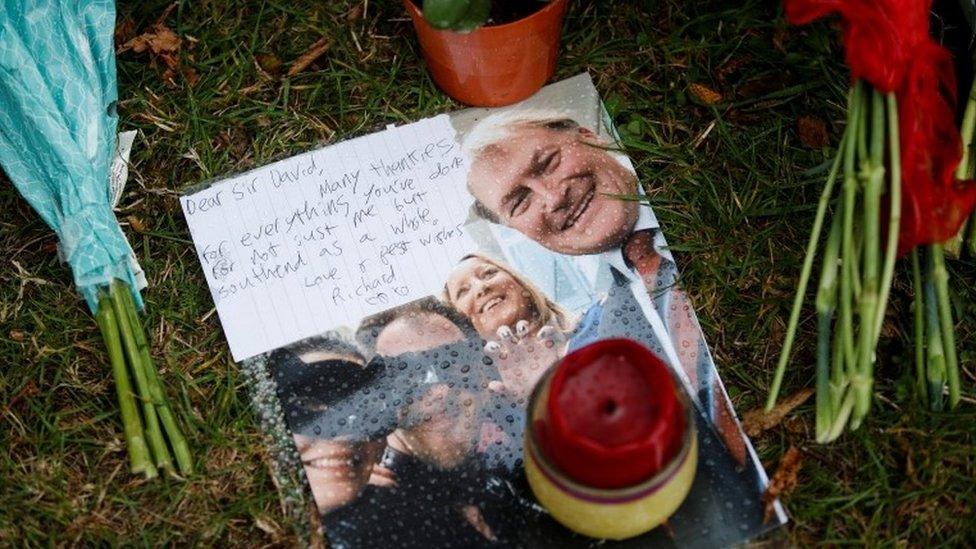
Tributes have been left to Sir David outside the church where he was stabbed
The London MP opposed suggestions that police could be sent to guard MPs' constituencies.
"One of my colleagues tried that and the numbers that came in just dropped," she said.
Asked about the possibility of ramping up security at MPs' surgeries, Ms Patel said it was one of a "range of measures" that could keep politicians safe.
But she added it should be considered on a case-by-case basis and be proportionate to the risk posed.
The home secretary advised that MPs could improve their security by only seeing constituents who have pre-booked an appointment and checking the backgrounds of the individuals.
Related topics
- Published17 October 2021
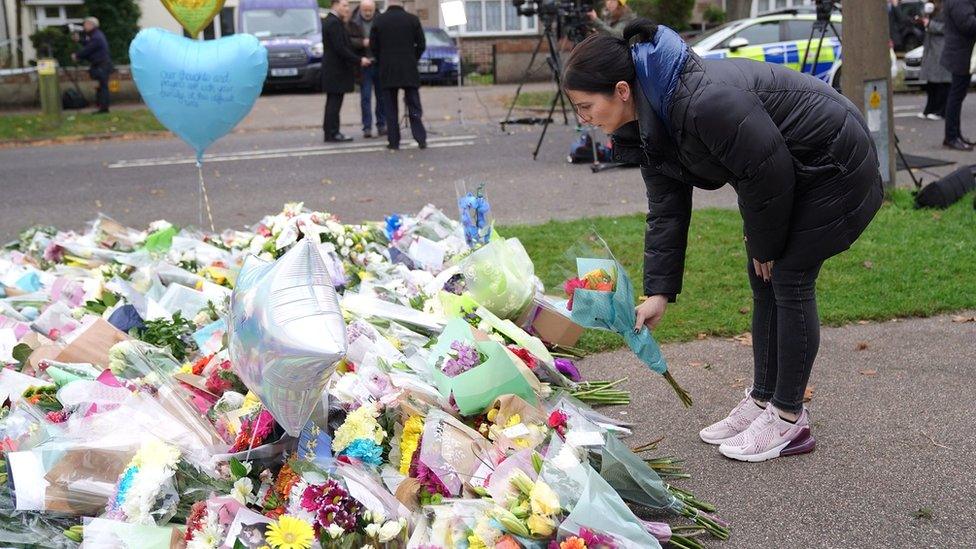
- Published16 October 2021
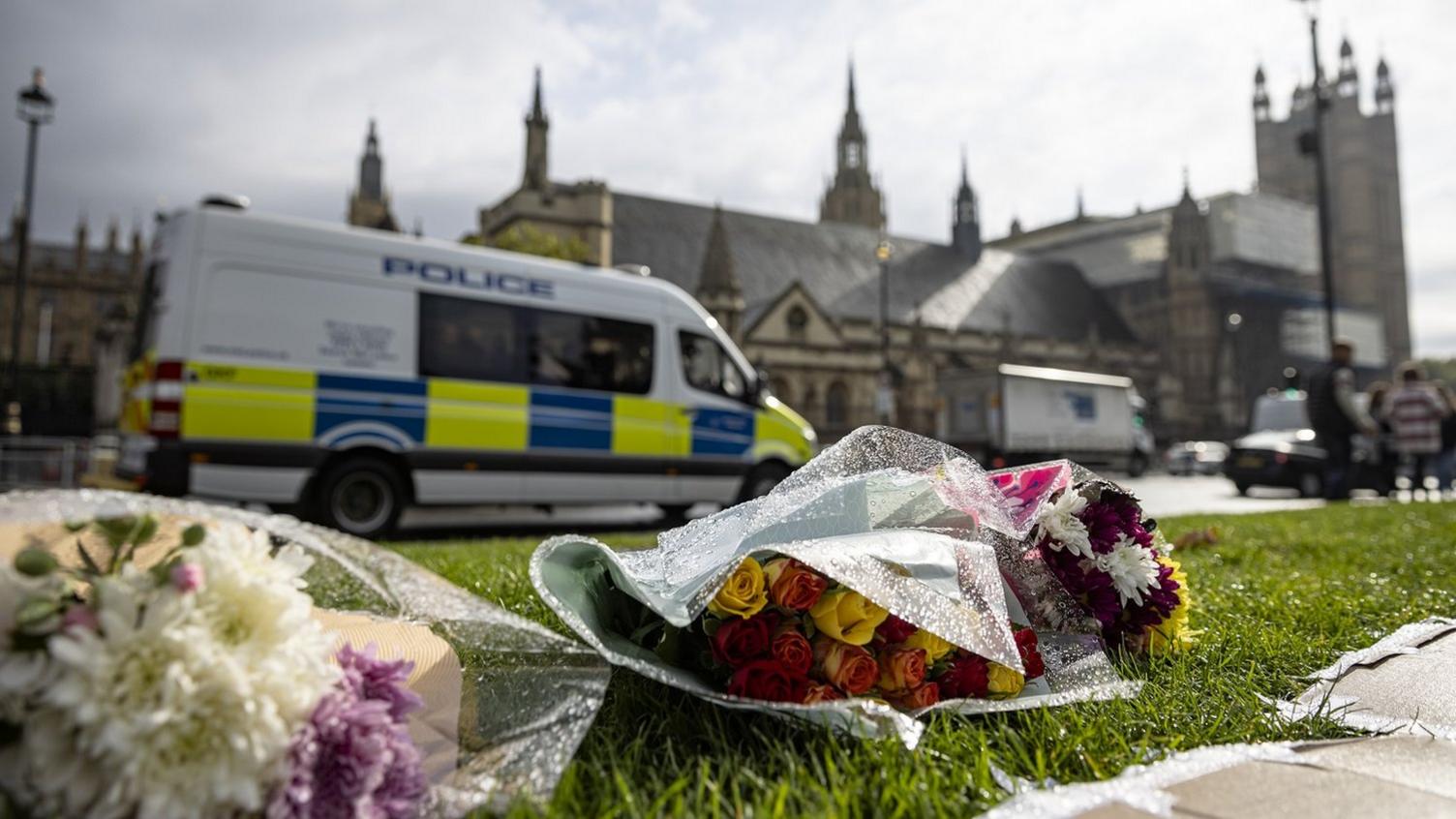
- Published15 October 2021
